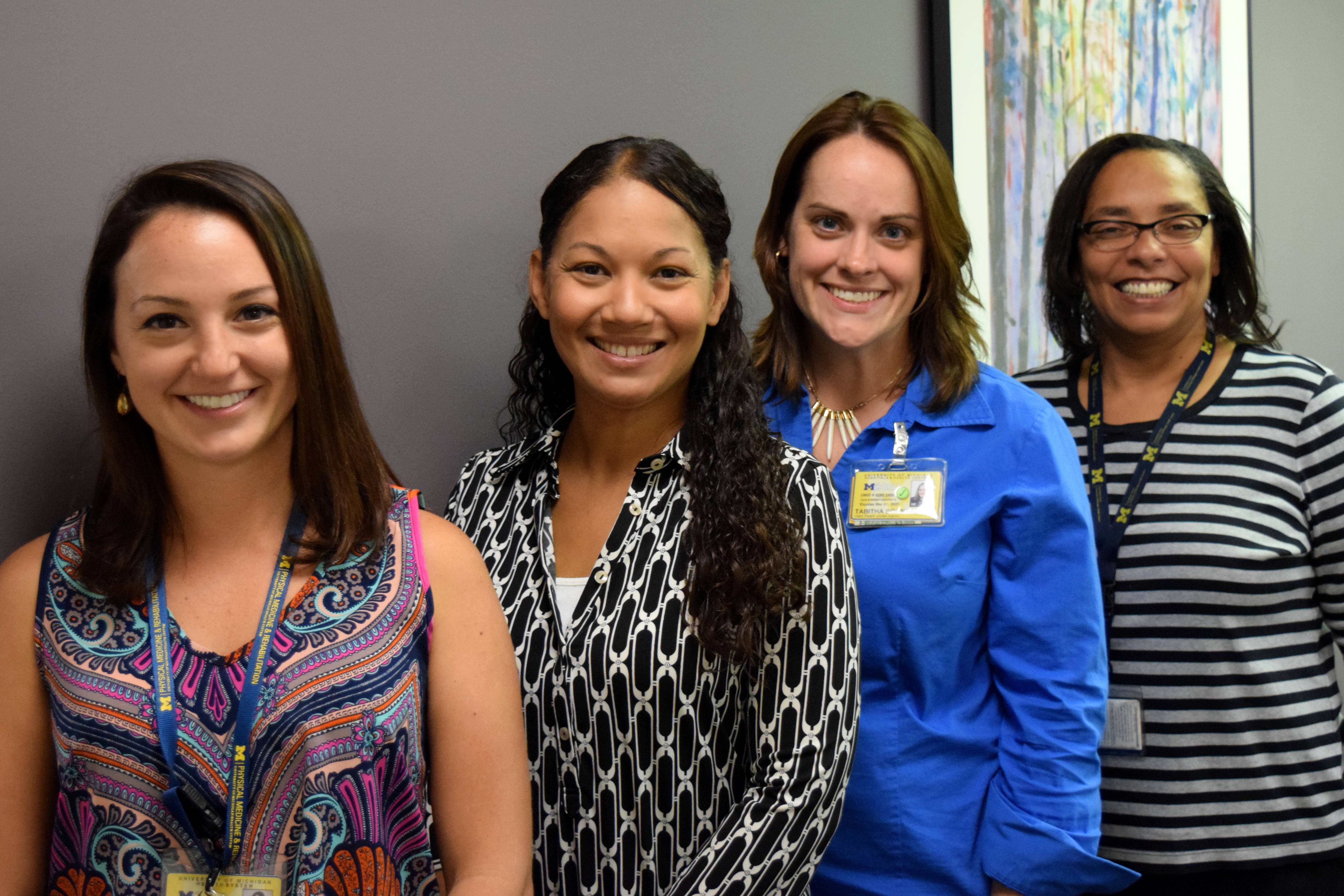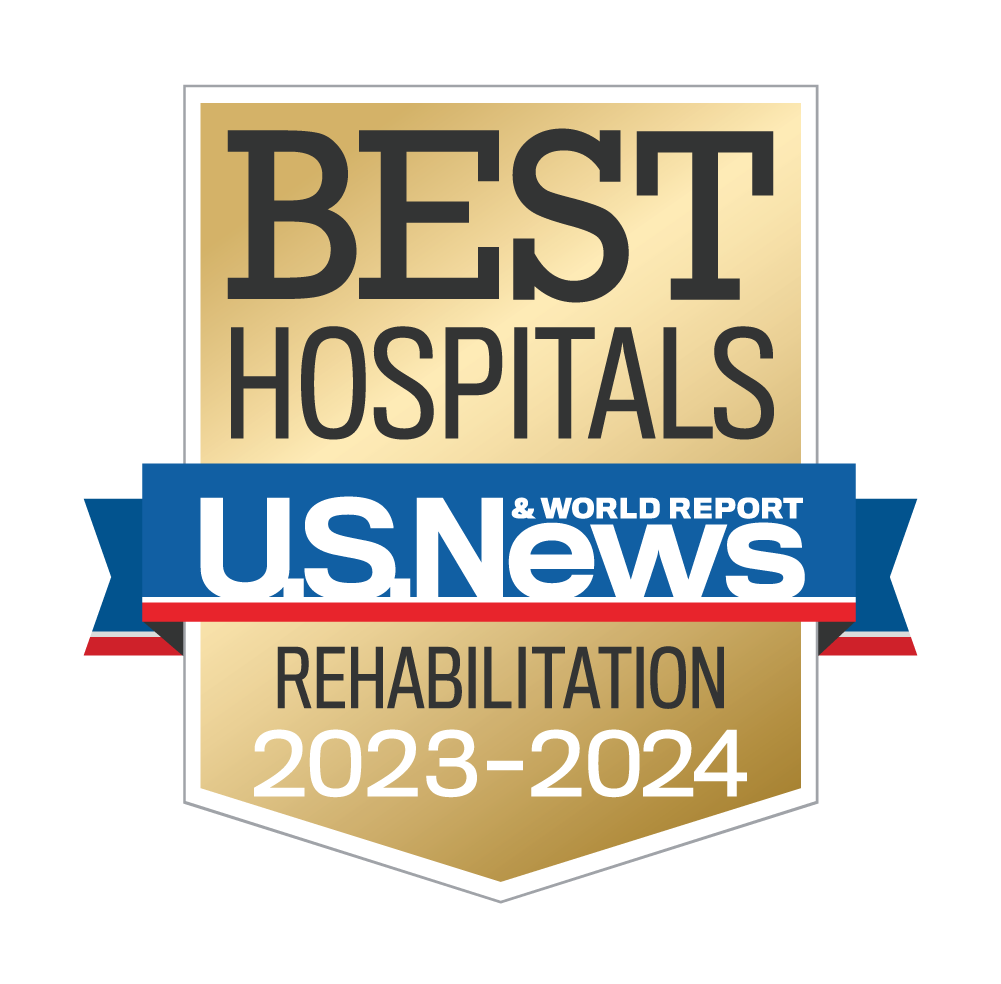
Ask Andrea Harris what her team does and she’ll give a knowing smile and list off a litany of tasks and services related to inpatient rehabilitation care from first contact with a patient to final goodbyes.
“We’re kind of the glue behind the operation,” said Harris, the inpatient rehabilitation manager for the Department of Physical Medicine and Rehabilitation. “We work to coordinate the pre-admission, insurance, and reimbursement processes for all inpatient rehab patients. A large part of what we are focusing on is education of faculty and staff as well as the public regarding the various facets of inpatient rehab. We are looking at ways to continuously improve the overall operation of the inpatient rehab facility.”
The inpatient rehabilitation admin team is comprised of five full-time people, a part-time assistant, and a couple of contingent people for coverage, according to Harris. The team brings experience from a variety of patient care related backgrounds – including a nursing, physical therapy, occupational therapy, and psychology – and they provide high-level resources for PM&R faculty and staff related to inpatient rehabilitation criteria and reimbursement. It may sound overwhelming to others, but Harris believes the high level of responsibility and interaction is what keeps people interested in the job.
The autonomy of the work is a particular draw for Kelly Mosely, the recently hired inpatient rehabilitation utilization review coordinator. Mosely obtains insurance and payer information for the inpatient rehabilitation population and makes sure they are able to stay on the floor once they’re admitted. She said, “I like the autonomy and taking a project from beginning to end.”
Tabitha Bohnsack, the inpatient rehabilitation admissions coordinator, sees her job as making a number of puzzle pieces match for the unit. Officially her role involves handling the processing for all of the incoming patients, but she describes it more enthusiastically, “I utilize the capacity of our unit to make sure we stay as full as possible.
The general flow of the inpatient rehab administration process starts with identifying potential patients. When a patient is admitted to the University Hospital, a PM&R physician will do a consult then contact the admissions coordinator, according to Harris. Once the patient has been identified as a PM&R patient, there is frequent contact between the physician and the members of the admin team. The admissions coordinator works with the insurance coordinator to investigate coverage and the PPS coordinator works on reimbursement to the department for the provided care. When the patient is discharged, the PPS coordinator collects the necessary data to complete the patient assessment instrument.
Previously, communication wasn't as optimized as everyone would like due to the team’s outpost location in the Medical Professional Building on the medical campus, but they have just moved in to PM&R’s main inpatient rehabilitation facility at the University Hospital. Moving to the hospital is exciting for Harris because it will allow them to integrate with the rest of the inpatient rehab team and help bridge gaps in communication between the clinical and administrative sides of inpatient rehab.
In Dani Roditi’s case, she brings an educational background to her job as PPS coordinator in additional to her clinical research background. Roditi describes herself as the numbers and compliance part of the team. She’s responsible for providing accurate and timely data to the appropriate entities involving Medicare patients, overseeing data collection and completion of the IRF-PAI for all inpatient rehabilitation patients, and providing staff education for the department’s clinicians and physicians to ensure compliance with CMS guidelines.
This clinical experience mixed with the team’s administrative proficiency makes it easier for them to facilitate communication between the patient and their entire care team
“As a team, we are looking forward to a very productive year," Harris said. "We're making headway in addressing operational efficiencies, compliance and education as we continue to support our inpatient rehab program.”


